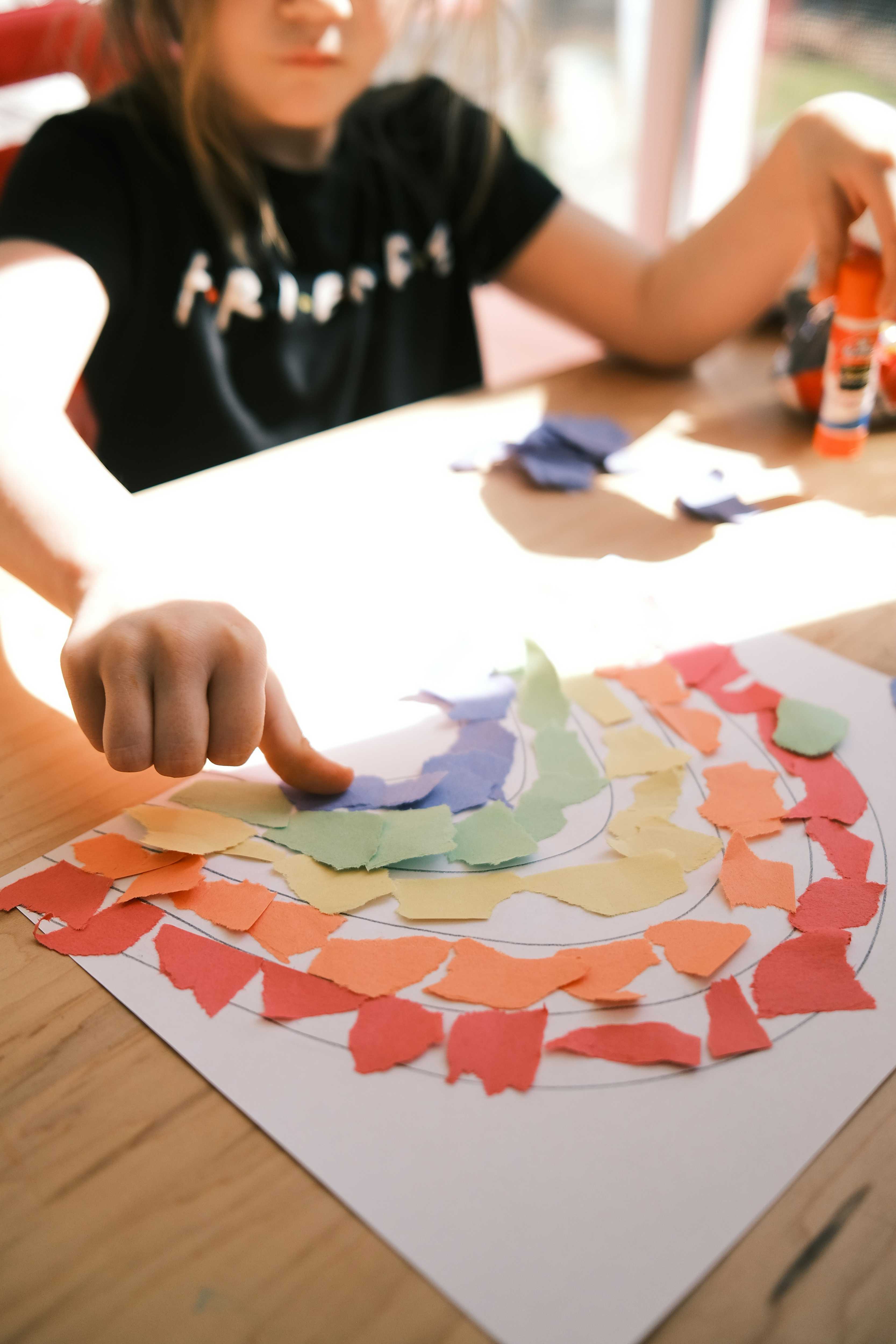1st grade teacher asked students to color their 'favorite' hat. She then secretly created each one for real.
"You cannot put a price on a good teacher."
A young child colors in a design. A baby wears a pink knitted hat.
Putting a dream into action can sometimes provide that little bit of magic children crave. So, when first grade teacher Ashley Lowry genuinely surprised her students with homemade hats based on their own designs, their reactions were super wholesome.
Lowry, who teaches first grade at Wallace Elementary in Kelso, Washington, is always looking for new ways to get her students excited about learning. According to KGW News, her aunt, Amy Lowry, had a thoughtful idea: "What if we created our own hats?" Amy tells the news camera, "So I had seen the idea and thought, well in the middle of winter, it would be a great project."
So, Lowry made photocopies of the already drawn winter hats with no color. The kids were tasked with coloring in their favorite designs. Some opted for solid colors like all blue or purple. Others were drawn to colorful stripes!
First grade students color in the hat of their dreams and their teacher surprisingly sews them. www.youtube.com, KGW News
Lowry shares that some of the kids were excited just to color. "I definitely saw kids who were like really excited about patterns. So you'll see kids that had like a nice repeating pattern."
Once winter break arrived, Lowry had her plan: she would take those hat drawings and sew each and every one of them for her 22 students. "I guess I didn't realize 22 hats was going to take as long as it did, but we managed," she shared.
Once they were back from break, she sent the kids off to recess so she could put each perfectly wrapped, made-to-design hat in their desks. When they returned, Lowry asked, "Raise your hand if you remember doing your hat." Many raised their hands enthusiastically.
She then read them a book called Extra Yarn, and told them to "go to their desks and sit down." She added, "I might do a little magic in here." As they sat obediently at their seats she shouted, "Let's say magic magic! Drumroll!" The children begin drumming on their desks. "Open your drawers," she instructs.
KGW News (@kgwnews) on Threads

The children excitedly do as told to uncover the gift-wrapped hats—just as they had imagined them. Delighted, some of the kids explained their design choices. "Because those are my favorite colors in the world!" one shared.
They each try their hats on to showcase what great work has been done. Aunt Amy shared, "I was just thrilled that everybody was so excited. And it looked like they're going to enjoy the efforts."
Lowry added, "They love accessories. So I can't wait to see these hats bouncing around. I think they'll love it and just that pride. It's something that they made!"
On a Threads post sharing the news story, commenters are deeply impressed with this teacher's choice to go the extra mile. One writes, "I absolutely love this story. The children’s teacher is amazing and these young little people will remember this moment forever. We need more stories like this in the world today."
This Threader points out how special the teacher is for caring for these children, writing, "You can’t teach a teacher that kind of compassion and empathy for their students, it’s priceless and starts these young students with a love for education and going to school. We should all take a lesson from this teacher!"

Another states the important and obvious, saying, "You cannot put a price on a good teacher."
The YouTube comments were equally supportive. "This made me tear up. Those kiddos are so excited! What a wonderful way to show them that people care about them and want them to be happy," one shares.
One commenter was not only impressed with the teacher's knitting skills, they adored the creative design picks. They wrote, "I LOVE that! As a crocheter of over 50 years experience, and a knitter of considerably less time, I can very easily appreciate all the effort that went into making all those hats! I do have to say, I really liked that one little girl's unicorn hat---even though I'm now 73, I very much like unicorns!"

